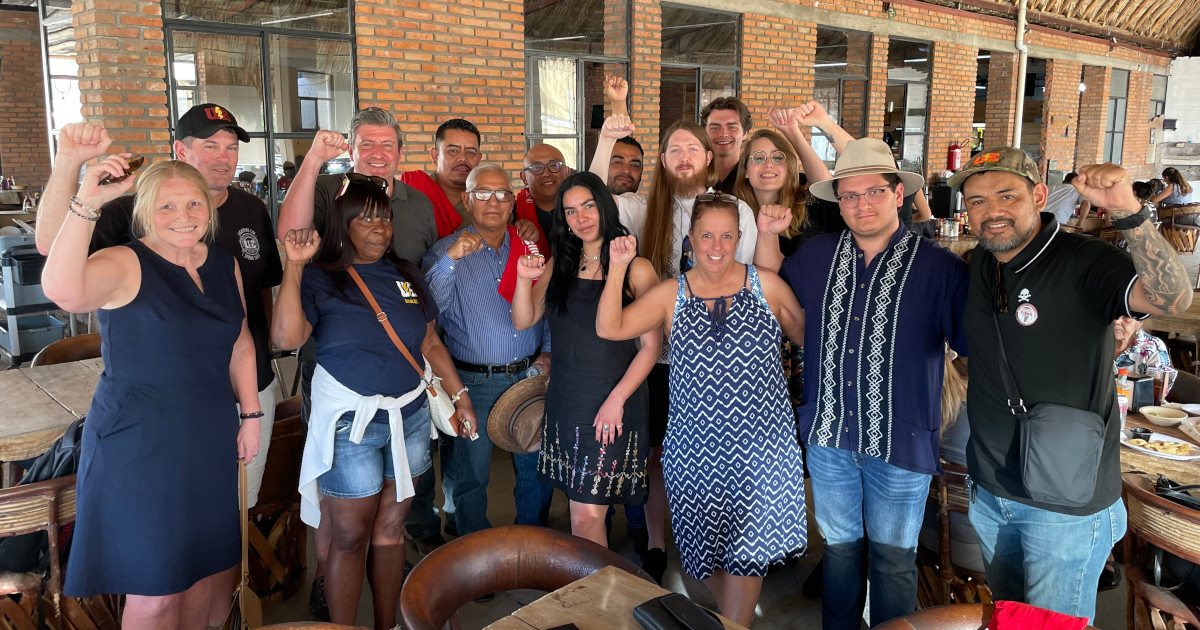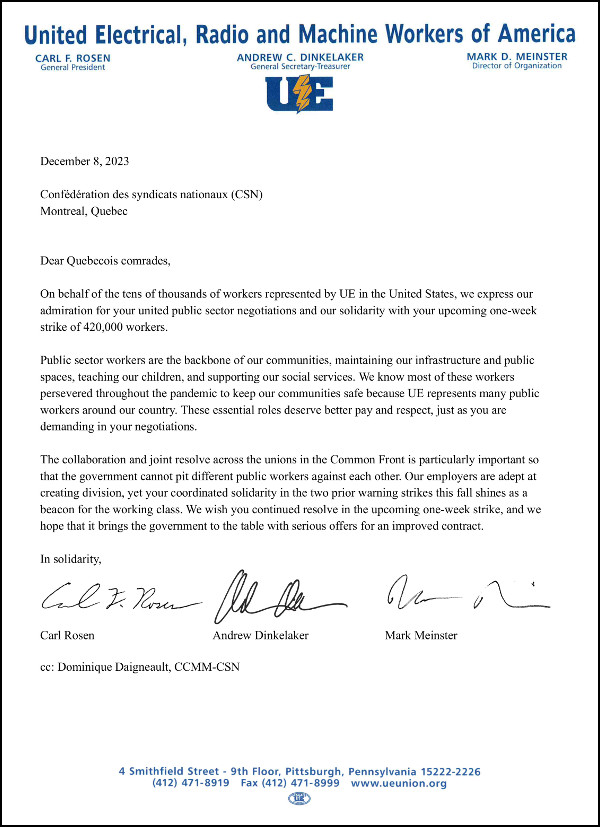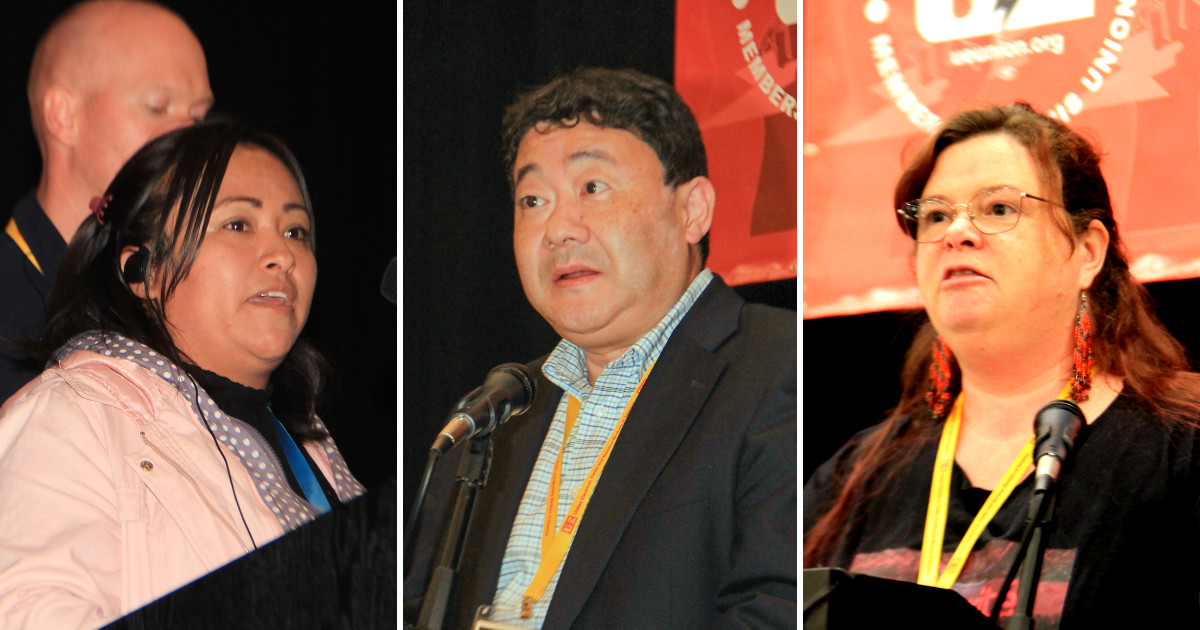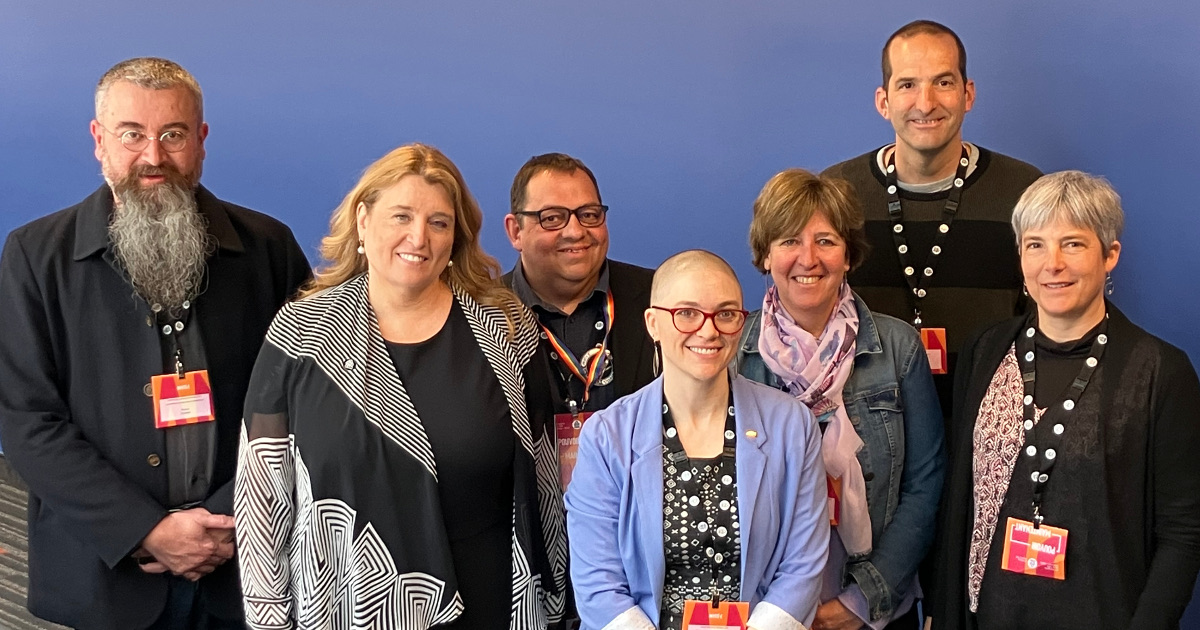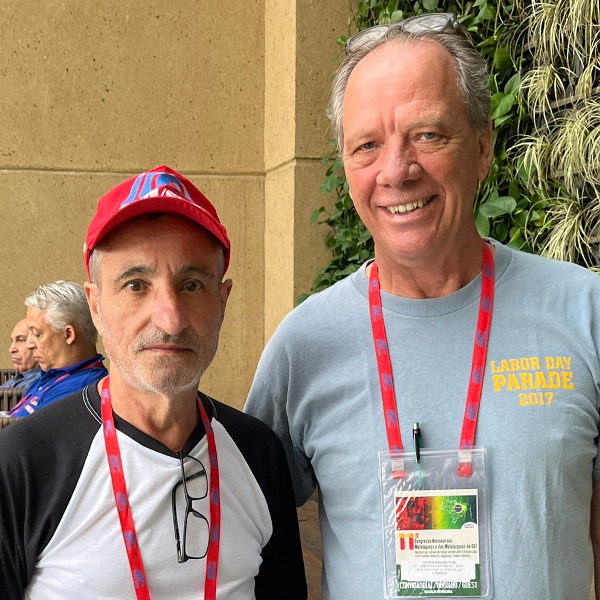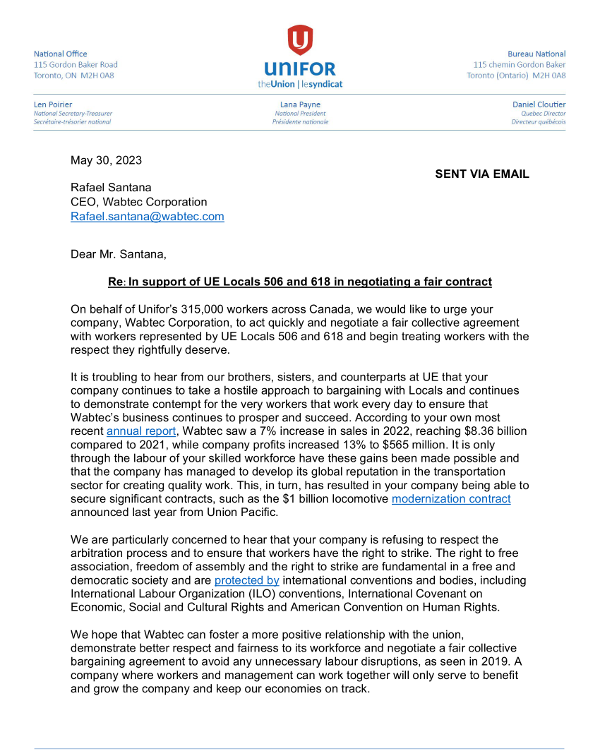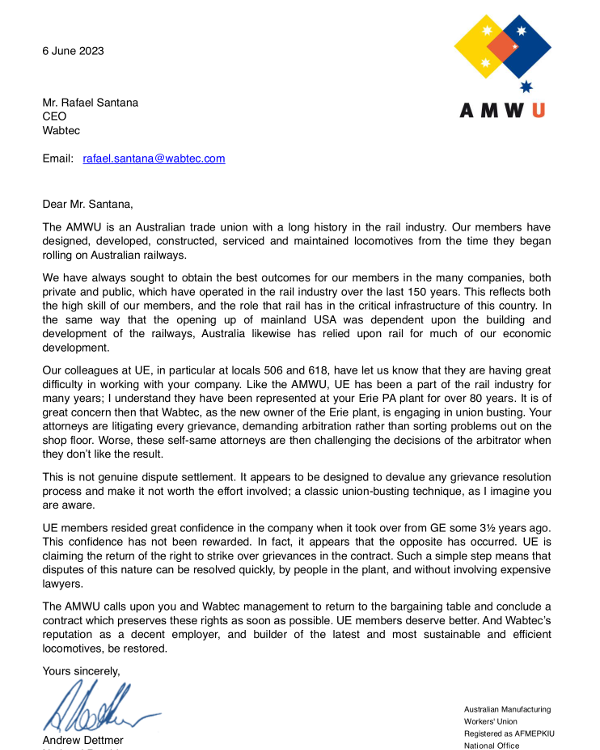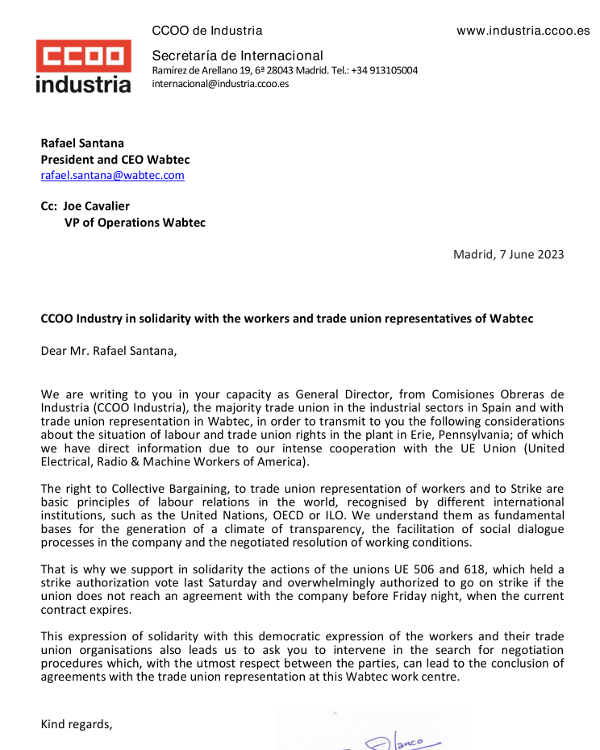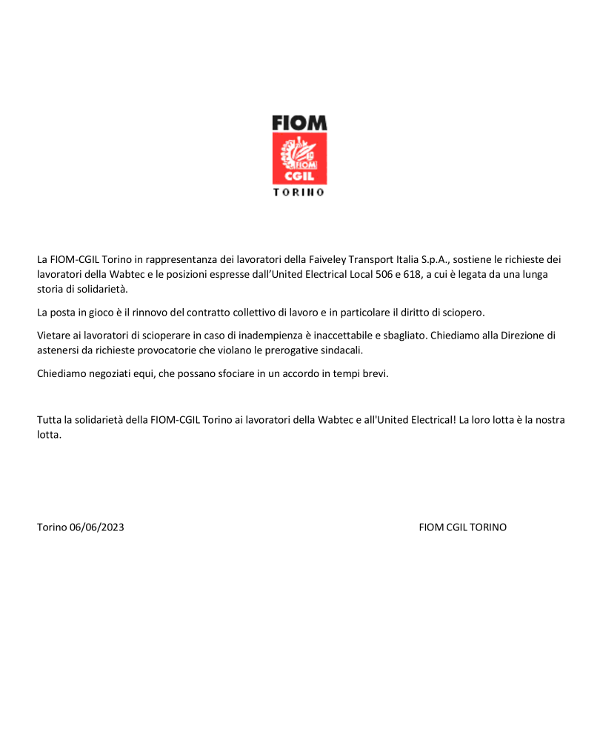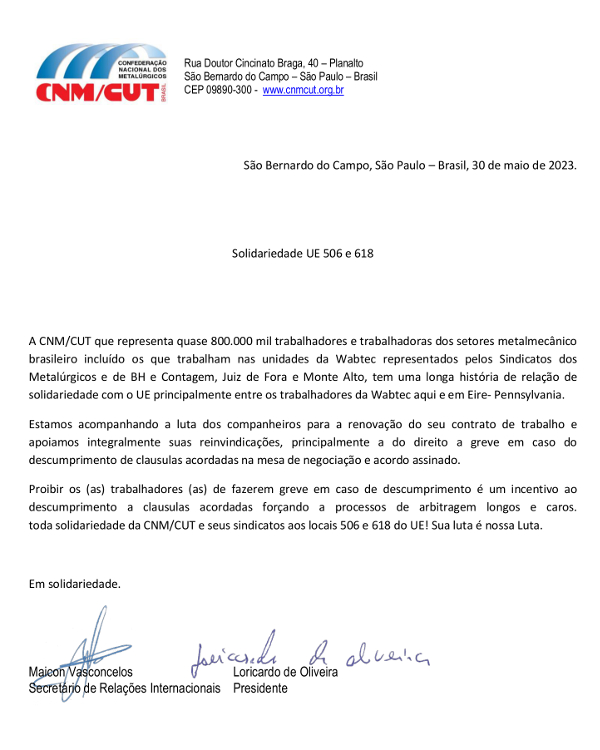A UE delegation traveled to Mexico for a week in May to meet with our allies at the Frente Auténtico del Trabajo (FAT) for the first time since 2017. The trip was an important opportunity to ground UE members in the union’s international solidarity work, which prioritizes supporting workers in their struggles with their bosses. As members learned, even when our managers might be different, our employers use the same kinds of tactics to prevent workers from organizing and to exploit workers’ labor.
The group included eight rank and file members from Locals 256, 300, 506, 618, 625, 728, 1077, and 1103, as well as Field Organizer Eric Cortes-Kopp, Director of International Strategies Kari Thompson, and Director of Organization Mark Meinster.
The FAT helped orient UE members to the challenges of the new labor law in Mexico, which was adopted in 2019. UE shared opportunities and challenges in current US labor law, including UE’s new organizing of tens of thousands of graduate workers and the ripple effect of strikes in 2023. Both groups shared reflections on political dynamics in their respective counties. Sharon Johnston, Local 625, explained how difficult it can be to talk with coworkers in the shop about politics because everyone is so polarized.
The FAT and the UE delegation also discussed the challenges facing working women in each country. The FAT brought together women leaders from many different workplaces, some well-known to UE, like the workers at Sintra MetLife, and others new to us, like the professors at a university in San Luis Potosi. UE members Janet Gray, Local 618, and Lauren Sims, Local 1077, participants in the Women’s Leadership Program, spoke about UE’s women’s rights resolution and the new program they are part of. Gray said she learned how bad the employment situation really was in Mexico. “I never really realized how bad it was for women there, but really for everyone.”
This trip was funded largely by a grant from the 128 Collective, who are excited to add an international dimension to UE’s Green Locomotive Project. The FAT was happy to accommodate this request and learn more about the project. They arranged a meeting with the Alianza de Tranviarios de México (ATM), an independent union representing workers at the electric tram and trolley system in Mexico City. This was UE’s first exchange with the ATM, though their union will turn 100 later this year. Leaders on the trip from Locals 506, 618, and 1077 shared the goals of the Green Locomotive Project. The ATM was excited about the ideas and said they would like to advance them at a meeting of the International Transport Federation later this year.
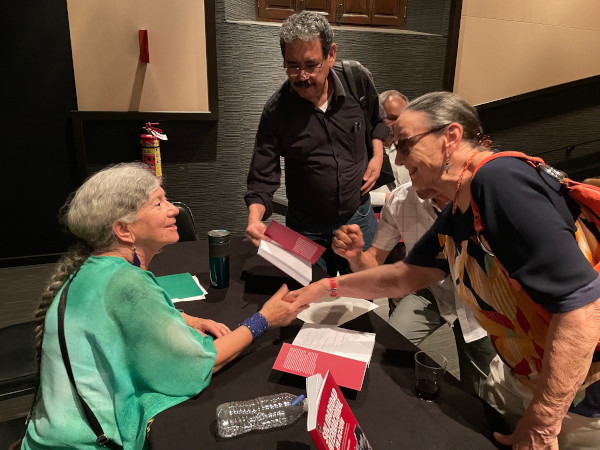
The delegation learned more about the history of the UE-FAT relationship at an event to celebrate the release of a Spanish edition of Robin Alexander’s International Solidarity in Action. Alexander, the retired UE Director of International Affairs, published an English edition of the book with UE in 2022. Her work was the focus of the event, and she opened with remarks that summarized the development of the UE-FAT partnership. Thompson was a featured speaker, and Local 150 retiree Larene Taylor and Dominique Daignault of the CSN in Quebec joined by Zoom.
“We have similar goals and interests for our membership,” reflected Ryan Mudger, Local 506. “Helping FAT make gains in the workplaces they represent also helps us in the USA.”
Graduate workers shared their experiences fighting for contracts, as well as protecting the rights of graduate workers to engage in peaceful protests on their campuses. This came up throughout the week, but was a featured part of a conversation with workers on the campus of the University of Chapingo, a public institution focused on agriculture, and during a conversation about new organizing with workers in Aguascalientes. In the latter, Kevin White, Local 728, also shared his experiences of using action in the shop to win better contracts. Participating in the conversation was a group of workers from a shop that is in the early phases of organizing with the FAT, as well as workers from INISIA, garment workers that UE learned about at the 2023 convention, and MAHLE, a long-time FAT affiliate.
“Meeting with fellow workers in Aguascalientes was the best,” said White after the trip, a sentiment shared by many UE members on the exchange.
A valuable part of the trip is also the relationships that UE members built with each other over the week. Johnston said, “I was a little sad when leaving because we had a bond, and I felt a little empty coming home.” Katrina Davis, Local 300, similarly reflected, “One of the coolest things about this trip was getting to know the rest of the UE delegation. I felt like every one of them had a ton of experience to share with me, and it was super cool swapping stories with them.”

